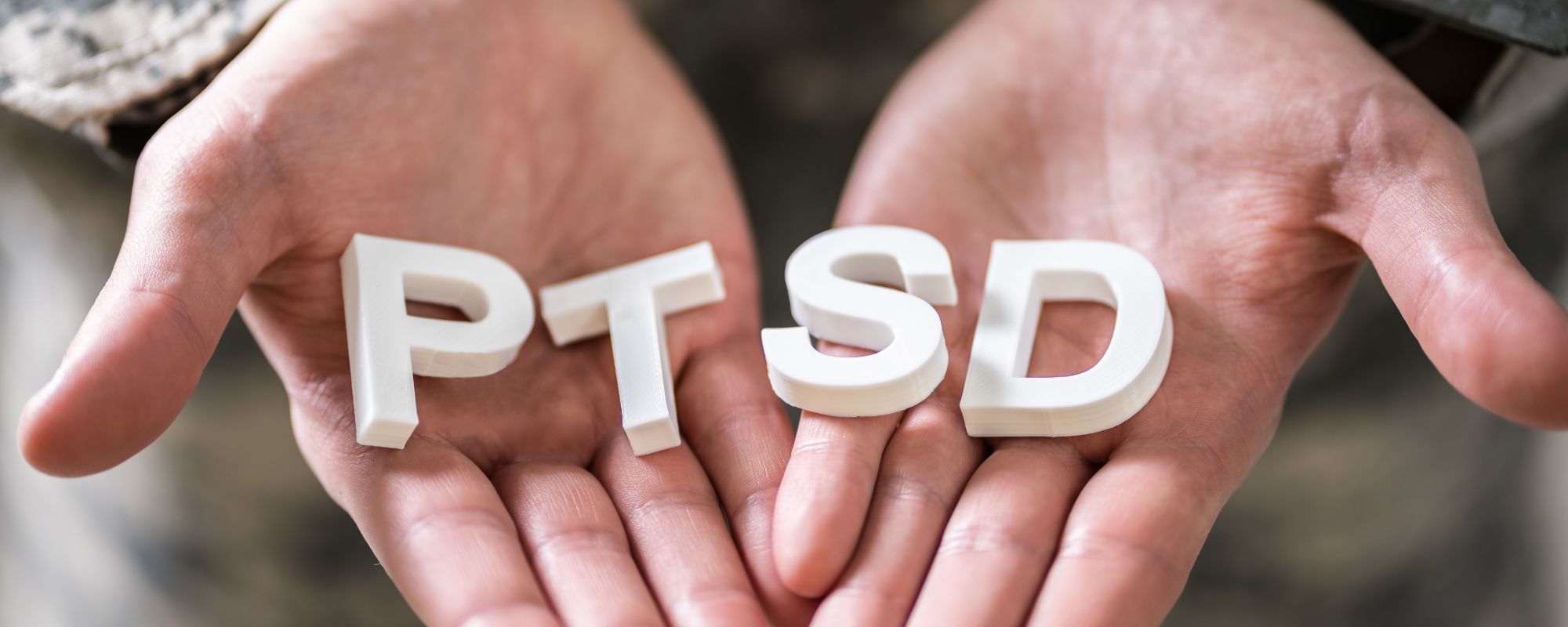Going through Adderall withdrawal can be a daunting task, resulting in physical and mental challenges. Adderall, a stimulant medication has become a cornerstone in the lives of many seeking to manage their mental health conditions. However, discontinuing its use after forming a dependency can lead to an array of withdrawal symptoms that can significantly impact your ability to function as well as your overall well-being.
To help you understand what Adderall withdrawal is like, here are insights into the medication’s properties, its potential for abuse, the signs and symptoms of withdrawal, alternative medications, and different types of help available. Whether you are considering tapering off Adderall or are already struggling with Adderall withdrawal symptoms, understanding what lies ahead can help you take steps toward recovery with confidence and clarity.
What Is Adderall?
Adderall is a prescription medication that contains two drugs: amphetamine and dextroamphetamine. These are both stimulant medications that affect chemicals in the brain and nerves that contribute to hyperactivity and impulse control.
Adderall is commonly prescribed to treat attention deficit hyperactivity disorder (ADHD) and narcolepsy, a sleep disorder. It works by increasing the availability of certain neurotransmitters in your brain, helping to improve concentration, focus, and control over behavior.
There are two primary types of Adderall:
- Adderall Immediate Release (IR) — Immediate-release Adderall typically starts working within 20 to 60 minutes after ingestion, with its peak effects occurring around 1.5 to 3 hours after administration. The overall effects can last approximately 4 to 6 hours.
- Adderall Extended Release (XR) — Extended-release Adderall is designed to release the medication gradually over time. The effects usually begin within 30 to 60 minutes after ingestion, with peak effects occurring around 4 to 7 hours after administration. The overall effects can last approximately 10 to 12 hours.
While Adderall can be highly effective in managing these disorders, it also has the potential for misuse and addiction, especially among people who do not have a prescription.
Misuse of stimulant medication can lead to serious health problems, including heart disease, mental health issues, substance-induced psychosis, and even sudden death. Trying to stop Adderall suddenly after developing an addiction can lead to unpleasant Adderall withdrawal symptoms.
Is Adderall Addictive?
Adderall is an amphetamine, so yes, it has the potential to be addictive. This is particularly the case if they are misused or taken without a prescription.
When taken recreationally or in higher doses than prescribed, Adderall’s euphoric effects can lead to misuse and addiction. Over time, people may develop a tolerance to the drug, meaning they need to take larger doses to achieve the same effect. This can increase the risk of Adderall withdrawal symptoms if usage is reduced or stopped.
If you or someone you care about is suffering from Adderall addiction or Adderall withdrawal, please talk to us.
Get confidential help from our addiction and mental health treatment facilities located across the United States. Call to join one of our quality programs today!
Speak With Our Admissions TeamWhat Is Adderall Withdrawal Like?
Stopping the use of Adderall suddenly can lead to a multitude of Adderall withdrawal effects. Withdrawal symptoms can occur when a person routinely uses a substance over an extended period of time. Over time, a person’s brain and body may become accustomed to its presence and require more to feel the same effects, also known as “tolerance.”
To regain equilibrium, the brain adjusts its balance of neurotransmitters and receptors, altering the way it functions to accommodate the constant influx of the substance. In doing so, the person becomes dependent on Adderall, needing it to concentrate, stay awake, or feel a sense of euphoria. As the dependency grows, so does the risk of developing an addiction.
Once dependency and addiction are formed, people who abruptly stop using Adderall or significantly reduce their dosage may experience a sudden chemical imbalance in their brains. The side effects that occur are also known as Adderall withdrawal symptoms.
Some Adderall withdrawal effects include:
- Fatigue and lethargy
- Depression
- Sleep disturbances (insomnia or hypersomnia)
- Vivid dreams
- Increased appetite
- Anxiety
- Headaches
- Difficulty concentrating
- Craving Adderall
- Mood swings
If you or a loved one are experiencing Adderall withdrawal, seek Adderall addiction treatment today.
Adderall Withdrawal Timeline
Here’s a general Adderall withdrawal timeline:
- Days 1-3: Initial crash. When the drug is stopped, the body will start to react. This could lead to symptoms like fatigue, depression, and increased appetite. The most intense withdrawal symptoms usually occur during the first few days.
- Days 4-7: Continuation of withdrawal symptoms. Symptoms like fatigue, irritability, and poor mood might continue.
- Week 2: Some of the acute symptoms may begin to lessen, but psychological symptoms like cravings, mood changes, and sleep disruptions might persist.
- Weeks 3-4 and beyond: For some people, several weeks after stopping Adderall, they may continue to experience mood swings, fatigue, and cravings. In severe cases, these symptoms might last for several months.
It’s important to remember that each individual’s experience with stopping Adderall will be unique.
Factors that contribute to the length and intensity of Adderall withdrawal include:
- Length of use
- Frequency of use
- Amount used
- Brain and body chemistry
- Whether or not other substances are being used
Each of these factors can significantly impact the withdrawal timeline.
If you’re considering stopping Adderall, it’s essential to do so under the supervision of a healthcare provider to ensure safety and manage withdrawal symptoms effectively.
What Are Some Adderall Alternatives?
There are a variety of alternatives to Adderall. The efficacy of these Adderall alternatives will depend on your individual body chemistry, as well as factors like dosage.
Medication Alternatives to Adderall
Some Adderall alternatives include medications such as:
- Methylphenidate (Ritalin, Concerta) — These medications are also stimulants used to treat ADHD. They have a similar effect as Adderall but may be better tolerated by some individuals
- Atomoxetine (Strattera) — This is a non-stimulant medication used to treat ADHD. It works differently than Adderall by specifically targeting norepinephrine, not dopamine.
- Guanfacine (Intuniv) and Clonidine (Kapvay) — These are non-stimulant medications originally used for hypertension but found to be beneficial for some people with ADHD.
It’s important to discuss all Adderall alternatives with a healthcare provider to determine the best course of treatment for you. This is because mental health professional can assess your individual needs and make recommendations based on their expertise and knowledge of your medical history.
Non-Pharmaceutical Alternative to Adderall
Some non-pharmaceutical alternatives to Adderall include:
- Cognitive Behavioral Therapy (CBT) — This type of therapy can help individuals with ADHD learn to better manage their symptoms.
- Neurofeedback — This is a type of biofeedback where individuals learn to alter their brain activity.
- Exercise — Regular physical activity can sometimes help reduce symptoms of ADHD.
- Dietary changes — Some individuals may find that certain food additives or lack of certain nutrients can exacerbate ADHD symptoms, so dietary changes may help.
It’s important to note there’s no one-size-fits-all approach to managing ADHD. Some people benefit from therapy and simple lifestyle changes, others require medication, and many find a combined approach works best. Work with your healthcare provider to find the best approach for you.
Looking for quality treatment for substance abuse and mental health that’s also affordable? Aliya Health Group's treatment facilities accept most major insurance providers. Get a free insurance benefits check now!
Check Your CoverageAdderall Abuse Treatment at Aliya Health Group
If you or a loved one are struggling with Adderall withdrawal, you don’t have to face it alone.
We at Aliya Health Group seek to be a beacon, resource, and partner for those struggling with Adderall addiction. We offer affordable and compassionate treatment for addiction to stimulants like Adderall, with treatment centers all over the country.
Before starting treatment with us, you’ll start with our medical detox program. There, our expert staff will assist you or your loved one in managing Adderall withdrawal symptoms as you clear the drug from your system.
After detoxing, proper treatment can begin.
There are several different approaches to treating Adderall addiction, including:
Residential Treatment
After successfully completing medical detox, you’ll transition to residential treatment, also known as inpatient treatment. There, you’ll receive medically-assisted treatment and dual diagnosis treatment to deal with any cravings or co-occurring mental health issues you may be battling.
In addition to individual and group counseling and medication management, you’ll also have access to leisure activities and family support services.
Partial Hospitalization
A step down from inpatient care but with more structure than conventional outpatient programs, a partial hospitalization program offers a good balance for those looking to ease back into normal life. Clients can receive care five to seven days a week for a number of hours each day, returning back to their homes in the evening.
This way, they can recover without putting their daily lives on hold, receiving intense therapeutic interventions like group and individual therapy, skill development, and medication management as necessary.
Intensive Outpatient Treatment
Clients undergoing this program participate in intensive therapy sessions, meeting three to five days a week, with each session lasting three hours. This level of care is a step down from partial hospitalization, requiring less time commitment.
IOPs offer participants the ability to continue their employment or academic obligations, receiving support and therapy as needed as they prepare to reenter society.
Outpatient Care
Finally, there’s outpatient care. Outpatient care allows clients to receive care without neglecting their responsibilities at home. It also tends to be significantly more affordable than higher levels of care.
Start Your Adderall Recovery Journey Today
If you or a loved one are thinking of seeking treatment for addiction to Adderall but have questions, call us at 888-965-3085 or contact us here. Our highly qualified staff will be happy to assist you.
REFERENCES
- Raising Awareness About Prescription and Stimulant Abuse in College Students Through On-Campus Community Involvement Projects – PMC (nih.gov)
- Amphetamine and Methamphetamine Differentially Affect Dopamine Transporters in Vitro and in Vivo – PMC (nih.gov)
- Stimulant ADHD medication and risk for substance abuse – PMC (nih.gov)
- ADHD medication tied to lower risk for alcohol, drug abuse in teens and adults — ScienceDaily
- Drug Scheduling (dea.gov)

















